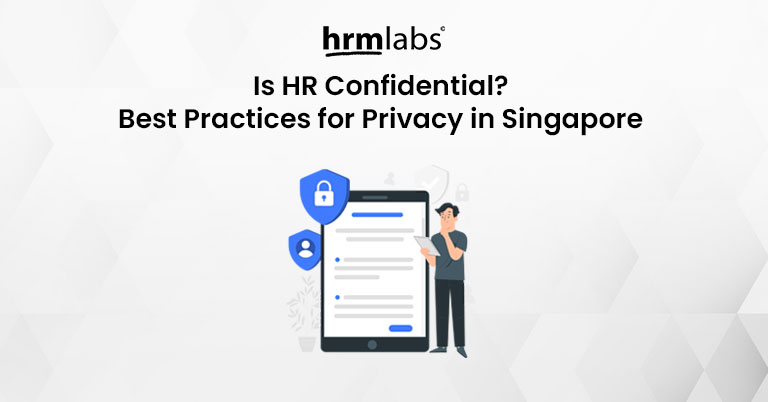Confidentiality is a cornerstone of Human Resources (HR), but how private is HR really? Employees often confide in HR about workplace concerns, personal issues, and career aspirations, expecting their information to be handled with care. In Singapore, where data privacy is increasingly inspected under the Personal Data Protection Act (PDPA), HR professionals must balance transparency, legal obligations, and ethical considerations.
Why HR Confidentiality Matters
HR confidentiality isn’t just about keeping secrets; it’s about trust. Employees need to feel safe sharing sensitive information without fear of retaliation or exposure. Mishandling confidential data can lead to compliance risks, legal penalties, and a damaged employer reputation.
In Singapore, the PDPA governs how organizations collect, use, and disclose personal data. HR departments must ensure employee information is handled securely to comply with these regulations and maintain workplace integrity.
What Information Should HR Keep Confidential?
HR manages vast amounts of sensitive data, including:
- Personal Identifiable Information (PII): NRIC numbers, home addresses, bank details, and medical records.
- Employment Records: Salary details, performance reviews, disciplinary actions, and resignation letters.
- Workplace Complaints: Reports on harassment, discrimination, or workplace disputes.
- Company-Sensitive Data: Internal policies, strategic plans, and proprietary business information.
Any breach of this data can lead to financial penalties under PDPA and loss of employee trust.
Can HR Keep Everything Confidential?
HR confidentiality isn’t absolute. While HR professionals should protect employee data, they must also:
- Disclose information when required by law (e.g., MOM investigations, legal proceedings).
- Escalate serious workplace complaints, such as harassment or fraud.
- Share relevant employment information with internal stakeholders like payroll or legal teams on a need-to-know basis.
Understanding when to uphold confidentiality and when disclosure is necessary is a delicate balancing act for HR professionals.
Best Practices to Safeguard Employee Data
To maintain compliance and build a culture of trust, HR teams in Singapore should implement these best practices:
Implement Clear Confidentiality Policies
- Educate employees on data privacy rights and obligations.
- Establish protocols on data access and sharing.
Use Secure Digital Systems
- Store employee records in encrypted databases.
- Limit access to authorized personnel only.
Regularly Train HR Teams on PDPA Compliance
- Stay updated with Singapore’s data protection laws.
- Conduct refresher courses on handling sensitive information.
Ensure Secure Communication Channels
- Avoid sharing confidential data via unsecured emails or messaging apps.
- Use password-protected files and secure HR software.
Monitor and Audit Data Access
- Conduct periodic checks to prevent unauthorized access.
- Implement multi-factor authentication for added security.
How HRMLabs Helps Secure Employee Data
Managing confidential HR data manually or through spreadsheets increases the risk of data breaches and non-compliance with PDPA regulations. HRMLabs provides a secure, cloud-based Employee Record Module designed to help Singapore HR professionals store, manage, and protect sensitive employee information effortlessly. With advanced encryption, role-based access control, and compliance features, HRMLabs ensures that your HR data remains safe while simplifying record management.
Take control of HR confidentiality with HRMLabs—your trusted partner for secure and compliant HR data management. Learn more today!



